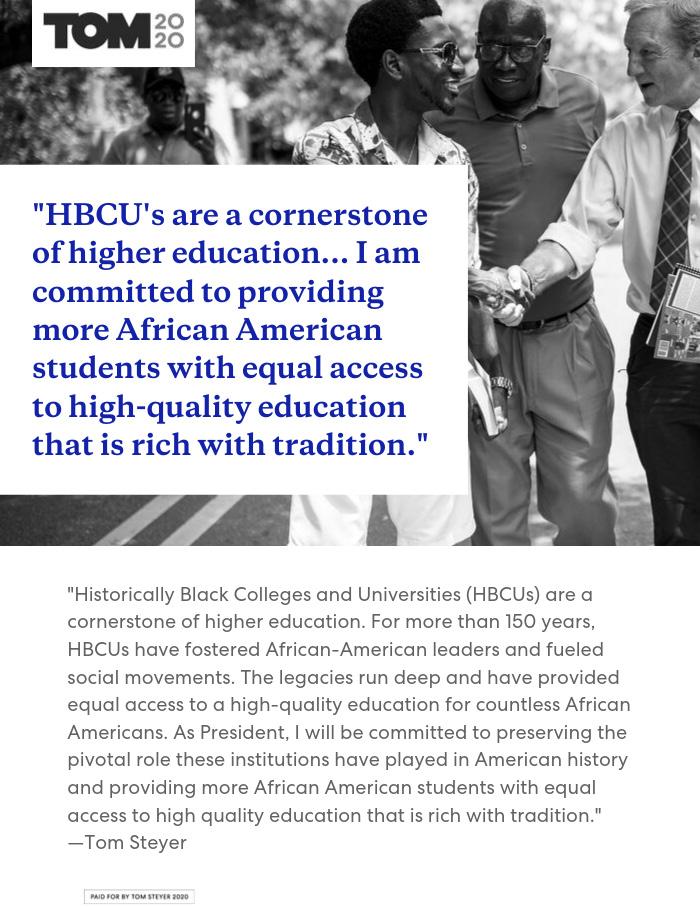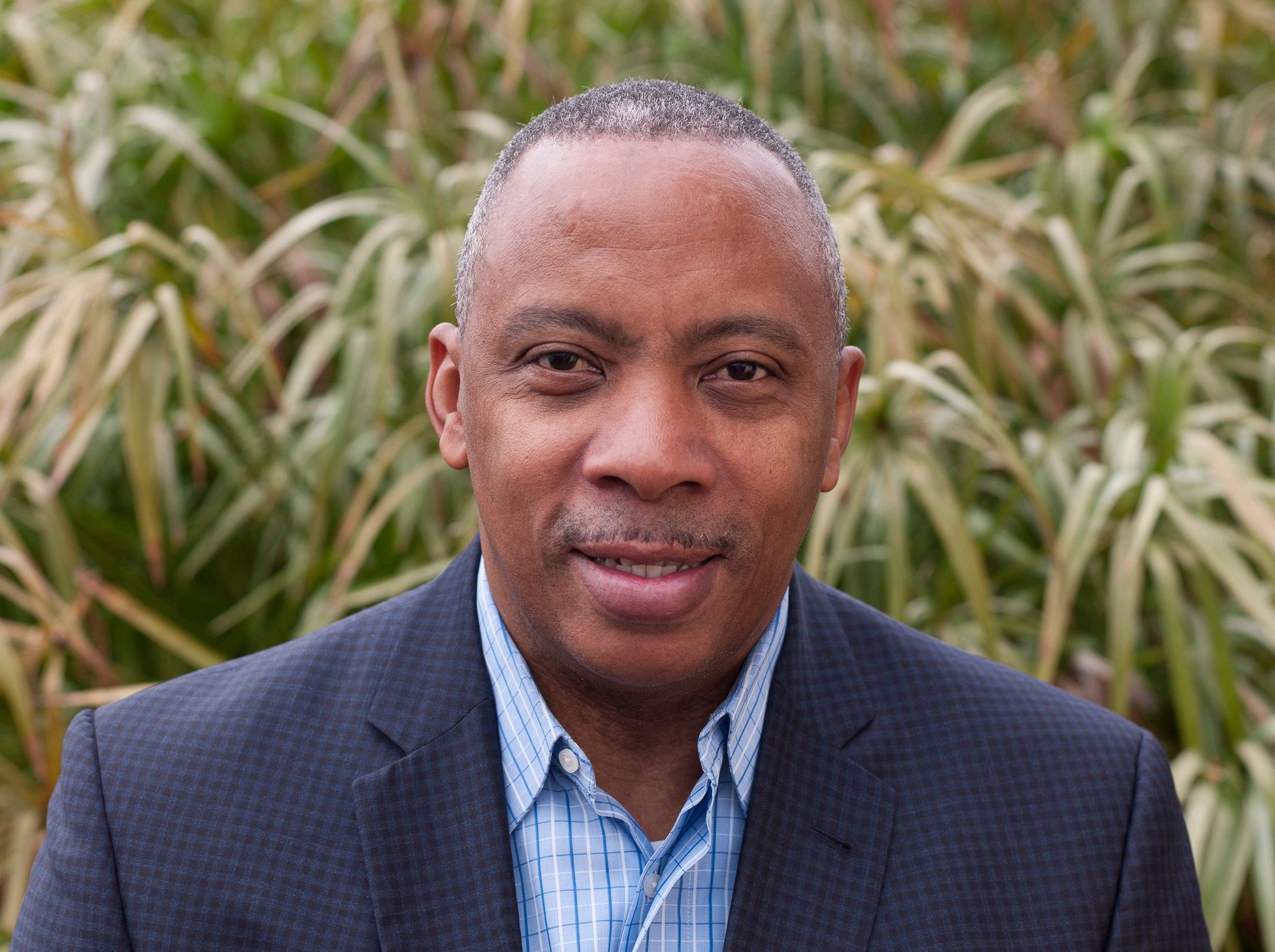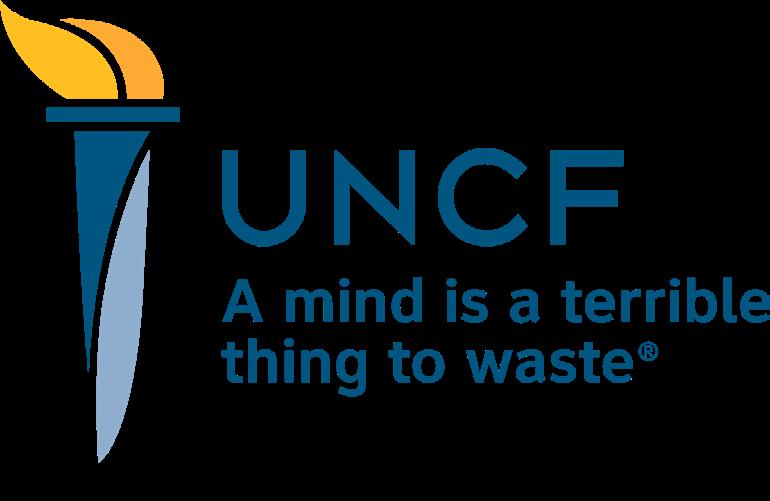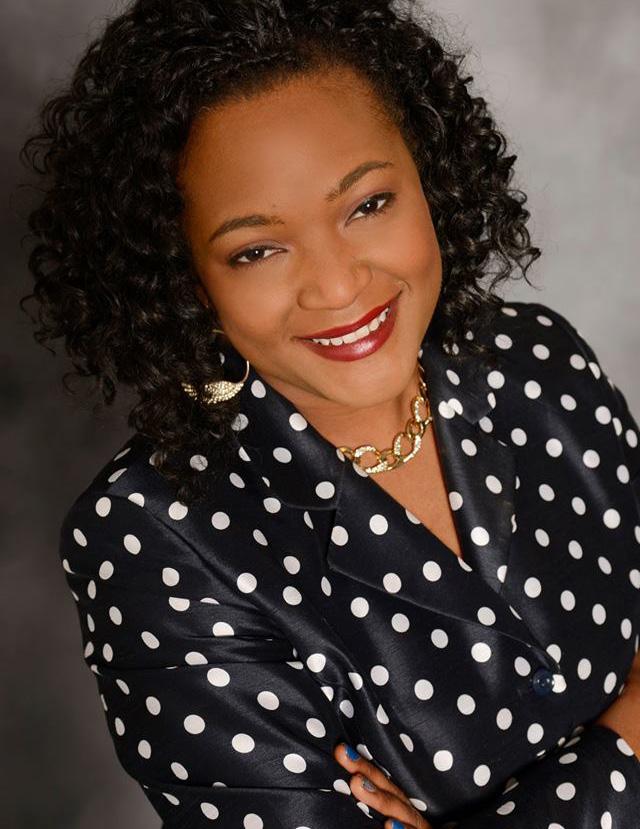
23 minute read
HBCU SUCCESS- AGAINST ALL ODDS
from HBCU Times Magazine
by HBCU Times
University (Class of 2006) campus, her goal of becoming a top media personality was going to require much sacrifice and hard work while in school, but it wasn’t until she graduated when she realized how life also became the greatest teacher. With more than 10 years in the industry, her work has graced various outlets including, MTV News, VH1, Nickelodeon, Entertainment Weekly, Blavity, iHeartRadio, and KillerBoombox.
Memories at Norfolk State University
HBCU SUCCESSAGAINST ALL ODDS: GEORGETTE PIERRE
BY LAURA ONYENEHO

HBCU’s have become an essential part of the fabric of the black higher education experience in the United States. The HBCU experience continues to cultivate and produces top black collegiates who excel across various industries despite the numerous challenges they face after graduation.
When Radio Personality, Content Creator, and Producer, Georgette Pierre took her first steps on the Norfolk State
26 | HBCU Times 2020 Winter Issue Pierre always knew she was a natural-born leader. The importance of having autonomy in her life and career was what she considered top priority and she wanted to attend an HBCU that would prepare her for the next level. “I grew up in Northern Virginia. I wanted to attend an HBCU out of state just to be in another environment than what I was used to,” said Pierre.
“Norfolk wasn’t my first choice but out of all the HBCU’s I applied to, they were the only ones that accepted me.”
With an open mind, she took the offer and quickly became acclimated with the campus. “ My HBCU experience was amazing,” she said. “ My parents are West Indian, so I knew the historical context behind an HBCU, but it didn’t dawn on me until I attended one. I liked how there was a traditional campus vibe to it.”
Finding Purpose and Facing Academic Challenges at Norfolk
Even though Pierre majored in business, her passion for pop culture and music eventually led her to her first taste in broadcasting as the host of a radio show on WNSB 91.1FM. “At Norfolk, I was in the music studio at school, rapping and performing at talent shows, she said.” “I was good at mimicking voices I would hear, and even though I wasn’t comfortable with my raspy voice, someone convinced me I had the voice for radio, and that was enough encouragement to audition for the role.”
Finally, in tune with her purpose, she spent time developing her skills, but quickly discovered challenges in her academic experience. She grew concerned about the lack of hands-on experience in the classrooms. “The entrepreneurial spirit was in me but my professors at the time weren’t equipped with the necessary business experience,” said Pierre. “They taught straight from the textbooks and the information didn’t stick. Even as far as reaching out to campus administration to voice my concerns were difficult. It felt like I was dealing with a Hip Hop artist’s public relation’s team jumping through hoops just to get a word in.”
PIERRE Post-Graduate Life In 2006, Pierre graduated hoping she would get her first job in radio, but ended up working for Enterprise Rent-A-Car and part-time at the Banana Republic for a year before returning to
school to complete her master’s degree in Integrated Marketing Communication at Emerson College in Boston. The available resources and practical training was what Pierre described as the missing piece from her experience at Norfolk. “I lived in the radio studios at Emerson’s 88.9 WERS FM, writing news stories, editing audio, and programming music,” she said.
She hosted and produced her own podcast and wrote for pop culture and music sites. “My skill sets improved, it was easy to connect with school administration, and the network was huge. The best part was being able to navigate my career with the experiences I had at an HBCU and a predominantly white institution. It was one of the most important things that helped me throughout my journey.”
When she graduated during the recession in 2009, she struggled to find work and eventually moved back home to Virginia for a year working temp jobs unrelated to her field. Reality sunk in and she quickly figured out the road to success wasn’t one direct path. In 2010, she took a risk and moved to New York City to get her foot in the door.
Hustle and Bustle in the Concrete Jungle
With the help of multiple informational interviews and Emerson’s alumni network, she was able to secure an externship at New York University’s WNYC radio station that only paid $10 a day. She took the risk of accepting the position not knowing how she was going to fund her stay. “My mom helped with rent the first four months I was there,” said Pierre. “ The hardest part was positioning for my next opportunity when I completed my time there. At the time, the station did not help me transition into a new position and I was left to find what to do next.”
Eventually, she leaned on temp work for another year and a half, until she could figure out how to get into Viacom. Through networking, she secured a freelance 10-month production assistant job with Viacom. The radio industry was tough especially for freelancers starting in the number one market. When her contract ended, she was out of a job again for another 8 months.
Unemployment and Mental Health
PIERRE In 2013, the bouts of unemployment took a toll on her mental health. She recalled living in a 100 square foot apartment, with a communal bathroom, without health insurance, or money. Self-doubt snuck in at every turn like a thief in the night. She questioned everything. At one point she was four months behind rent payments and eventually had to stay with a friend who didn’t charge her for rent. “For three months I worked in retail to save money while working to get back on my feet,” said Pierre. “ I was willing to sacrifice my financial security for a certain period of time. Everything was mind over matter. Not many people could go through what I went through but I had a dream. I had to humble myself and do the groundwork to get there.”
Eventually, Viacom offered her another Office Production Assistant contract in 2013 and she worked between VH1 and Nickelodeon for five years. “At the time, the company had a rule about how long freelancers could stay on a job in a given period, said Pierre. “Once I came back though, I stayed for five years moving up in my department and then a different network under the same company umbrella.”
The Power in Creating Your Own Platform
To create the autonomy she desired for her life and career, Pierre produced and hosted her own YouTube web series #DearGeorgette in 2015. #DearGeorgette was the next step in her “creative and evolutionary process.” The series was a witty and blunt style relationship and pop culture show that received head nods at the NYC Web Fest and the Hollywood Black Film Festival. The show lasted two seasons. Pierre also produced and hosted her first p op culture a nd edu-tainment internet radio show called Off the Record in 2009.
“I felt so much joy creating content. I took my skills from Viacom and applied them to my own work,” she said. “These days employers want to see if you have an audience. People are taking the initiative now more than ever. Don’t wait for someone else to tell you that you are valuable.”
Next Moves in Media and Entertainment Industry
With all of her sacrifice, Pierre felt she was in a great place financially but there was something inside of her that made her feel like she was settling. Her dream was to be in the radio industry and she was ready to make another big career move. “I saw that there was a part-time commercial radio job in Miami and it had it everything I wanted,” Pierre said. “I went for the job and once I got accepted, I bought a plane ticket and left. In New York, I was making $80,000 and took a major pay cut to chase my dream.”
She landed a role as a morning show host at WEDR 99Jamz, a Miami-based Hip Hop and R&B station. Pierre later produced a weekly digital web series for the station called 99 Second Rap Up, as a way to attract more listeners. Pierre continues to be a content creating machine with the launch of her new podcast Black+Nuanced and is in the works to launch more projects in the future. “One day I hope to create a space to connect more black creatives,” she said. “Long term I look forward to building generational wealth, public speaking opportunities, and a consulting business. I can do anything as long as I have the right mindset.”
When asked about what she could have told herself as a Norfolk State student that would have helped her in her career, she said, “Give yourself grace. Love yourself and stop taking yourself too seriously.”
The pressures of higher education begin at the ripe age of 12 as a middle school student walks into the office of the Career Specialist and begins to map out his/her future and aspirations. At a time when coming into who they are, their first crush, tryouts for their favorite sport or cheerleading squad, and the big P word, “puberty!” This is where the journey of assessments, testing, course alignments, time management, community involvement, and social development and awkwardness begins. Who has time to think about College? They are just trying to get through the anxieties of walking the halls of high school.

Now, that the picture has been painted and the stage is set, let’s talk about you, the beloved alumni. I’m sure by now you have reminisced and gave a good ole’ church shout of thanks that you’ve made it over those hurdles. Now the work begins.
Title III of the Higher Education Act of 1965, Congress officially defines an HBCU as a school of higher learning that was accredited and established before 1964, and whose principal mission was the education of African Americans.
The greatest misconception of “give back” is hog tied to “the almighty dollar.” Monetary donations are wonderful and greatly appreciated, however there is so much more that is needed to protect and enhance the HBCU Legacy and Experience.
GIVING BACK TIME, TALENT AND TREASURES BY KENITA PITTS TIME: When was the last time you spent “time” on the campus of your beloved Alma Mater? Stop! Homecoming, Galas, and guest speaker appearance are excluded. Let’s venture on the side of volunteerism, mentoring, tutoring, offering internship opportunities, teaching a young man how to tie a tie, dress for success tips, time management tips, workshops, seminars, and/or forums about the importance of credit ratings, purchasing power, investing, soft skills and the like. How much TIME have you invested in your university? What does your “give back” look like?
“Life is not about receiving at all times; it is a combination of being thankful for what you have as blessings and sharing those blessings with others who need a fraction of what you have.” -Catherine Pulsifer
What blessings have you received from your beloved HBCU? Would you classify them as priceless? When you look at your conferred degree what emotions and memories over take that moment?
For every after thought, understand that for a first-time and/or first generation freshmen, their moment begins the day they step into the registration line of your beloved Alma Mater. Your presence matters more than your presents. Trust me! Students look for you to be there. They look for advise, encouragement and guidance. This my fellow HBCU grads is priceless!
TALENTS: What are you holding on to that can help someone else throughout their matriculation? What is the one thing you wish someone shared with you during your matriculation?
Millennials and post-millennials are no different from you. I call it the “remix” generation. Just look around, bell bottoms, biker shorts, high top fades, Frankie Beverly and Maze, and more are resurfacing in ways I would’ve never imagined.
Your gifts, knowledge and yes your talents are beneficial to others. Your blessings are received so that you may share them with others.
Your business, dissertation, countless essays, resources, study habits, referrals, craftsmanship, innovations, inventions, entrepreneurial insight, and talents just may be the “it” factor to give light to a dark moment and/or circumstance. Your insight may be the first or last paragraph and/or page of that 15 page essay that’s due tomorrow. Share that, share your talents. If entertainers never shared their “talents” where would the claps come from?
TREASURES: Now this is a scary word for most. A word that exhibits the most hesitation and in most instances a lack of trust. Where is money going? Is it tax-deductible? Is it earmarked? I love my HBCU but I don’t like the President. I had a bad experience with a particular department and/or professor and I’m not giving back.
All valid statements but let’s flip it. You water your garden/plants, remove the brown dead leaves, you speak life to it if and when it wilts, you adjust its placement if the current location is stunting its growth, you repot it when it out grows its current residence and you sit back and marvel at it in awe that you literally had a hand in its growth beauty and healing abilities. It enhances the atmosphere and introduces all to the mystery of life!
Need I say more? But if you didn’t get it, Nurture, Groom, Protect, Research, Take Care of and feed what has provided nourishment for you.
Give back and invest in what you love!
Long Live The Historically Black Colleges and Universities!
Alumni, we need you to survive. Answer the calls of your beloved Alma Mater.

Kenita Pitts-Howard has built her career in middle and higher education and service to her community as a Victim’s Services Provider, motivational speaker and College Admission Coach.
Kenita is a proud HBCU alumna of Claflin University, where she received a bachelor’s degree in Sociology and Criminal Justice Administration.
In her spare time she writes poetry and blogs through “Kenita Speaks”. She is a member of Alpha Kappa Alpha Sorority, Incorporated and resides in South Carolina with her husband and daughter.

HIDDEN NO MORE: FLORIDA A&M SEEKS TO INCREASE BLACK WOMEN ON STEM FACULTY
BY CRYSTAL A. DEGREGORY
Forty percent of associate professors in STEM in the U.S. are women, and 20% of full professors. Women of color comprise less than 5% of assistant professors and less than 2% of full professors in STEM nationwide. With the help of a five-year, $2.97 million award from the National Science Foundation (NSF), Florida A&M University is hoping to change these statistics and focus on getting more Black women into the STEM professoriate. The NSF ADVANCE Institutional Transformation (IT) grant is awarded to institutions to promote gender equity in academia. As the fifth Historically Black College and University (HBCU) to be awarded the NSF ADVANCE IT grant, Florida A&M chose to specifically focus on Black women because there are few Black women professors nationally, and even fewer in science, technology, engineering, and mathematics (STEM). Described as being minorities among minorities, Black women and other women of color in STEM faculty at Florida A&M offer the unique opportunity to extend the intersectionality research in STEM in a context where Black women students are the majority, but where Black women STEM faculty are the minority. Dr. Marcia Allen Owens will serve as the principal investigator of FAMU ADVANCE IT and hopes to unmask the intersectional effects of Black women’s existence and experience in the academy. “The practice of lumping Black women’s presence into a group with all women, or with other underrepresented minorities, is an effort to maintain statistical significance,” said Owens. And even at an HBCU, Owens said Black women may consider these institutions home, but maybe considered imposters at home. “The project’s focus is not to merely help women survive the system or to ‘fix’ the women,” says Owens. “Rather, the work of FAMU ADVANCE IT will be to examine and address aspects of the system’s embedded culture, policies and practices that impede the hiring, retention and promotion of women faculty in science, technology, engineering and mathematics (STEM), as well as the social and behavioral sciences (SBS) at FAMU.” An associate professor of Environmental Science & Policy, Owens is currently the only woman faculty member in the School of the Environment (SOE), and notably was the first Black woman ever to be tenured in Florida A&M’s School of the Environment. The grant identified inadequate mentoring as one of the issues it seeks to remedy and creating a formal mentoring system for women faculty is an important grant deliverable. Another grant deliverable is development of a university wide implicit bias training. Scientists are typically seen to be white and male, leading to the devaluation of women generally, and women of color particularly. Differential burdens and specific microaggressions faced by women of color STEM faculty are coupled and compounded with gendered expectations of what women, regardless of accomplishment should do. “Just because you are surrounded by Black folks does not mean that you have a sense of belonging,” said Owens. “It’s the double bind imposter syndrome. You look like a Black girl, but you aren’t doing Black girl things as dictated by popular culture, and if you are doing Black girl things and live with visible Black girl joy or style, you’re not a serious scientist or scholar.” “Even in our meetings, a Black woman observer described the group of Black female principal investigators, as being difficult with ‘strong personalities,’” she continued. “We stopped the meeting and said, just because our personalities are strong, and our voices are raised doesn’t mean that we’re angry. We’re friends and colleagues. We can have differences of opinion, work
“When I was interviewing for my current position, a white woman interviewer asked me, ‘Why would you leave Emory to come here?’ The implication being if one chooses to work at an HBCU, then one must be defective in some way,” Owens said.
The low numbers of women faculty at FAMU are indicative of issues in the university’s culture, but also the culture of science as a discipline that hinders women’s hiring and advancement in faculty issues.

“What is it about the culture that makes women not choose the academy or the academy not choose women for faculty positions? The answers to these questions also have an impact on the pipeline of women students into the faculty,” she said. “Representation does matter. If women students cannot see themselves as faculty, then they choose other options.”
through them, and still get the work done.”
In the first six months of building infrastructure, Owens and her team have brought together women and men to discuss implementation, through the two main foci: research and policy. “The teams that we are building bring together people who have seen each other on campus, but have not talked in depth about their experiences,” said Owens.
“With every meeting, when the discussions settle on experience in tenure, promotion and progression, participants begin to share their individual experience and someone else fills in the blanks, acknowledging a similar experience. Each time, the first-year doctoral student and the young Ph.D. who serves as the project manager exclaim, ‘Y’all all have the same story!’”
The meetings are already providing a source of psychosocial support to women — some of whom are telling their stories out loud for the first time.
“They are simultaneously finding out that they are not alone,” said Owens. “But also, men who participate in these meetings are informed about the barriers that women face, while shifting their own perspectives on how culture, policy and practice impact us all.”
STEM Ph.D.s are among an elite group, even at HBCUs. However, because HBCUs are still not perceived as being on even intellectual ground as PWIs, they’re not elite enough to garner the respect of their PWI colleagues.

A historian and storyteller whose research interests include black higher education and college student activism, Crystal A. deGregory Ph.D., serves as the founder of the HBCUstory, an associate professor of history and was formerly the award-winning inaugural director of the Atwood Institute for Race, Education, and the Democratic Ideal at Kentucky State University.

Experience the care of a lifetime.

A tradition of superior care. Generations of women have entrusted their health care to Regional Medical Center (RMC). From the first gynecological visit and childbirth to high-risk pregnancies, fertility issues and menopause, RMC Women’s Center offers the full spectrum of health care services for every stage of a woman’s life.
Annual Exams Ectopic Pregnancy Endometrial Ablation Fibroids High-risk Pregnancy Hysterectomy Infertility Menopause SERVICES AND SPECIALTIES INCLUDE:
Ovarian Cysts PAP Smears Prenatal Care Tubal Ligation
David Gillespie, MD WOMEN’S CENTER TEAM
Bruce Williams, DO, FACOG Thomas Key, MD Dorwin Moore, MD Patricia Smith, CNM
RMC Women’s Center is accepting new patients. To make an appointment please call, 803-395-3737.
2850 Pelham Court | Orangeburg, SC 29118
STEM NOLA: DR. CALVIN MACKIE, MOREHOUSE ALUM

BY KHALILAH LONG
A 15-year old kid excels in all subjects in school except science. He hates everything about it – from the periodic table to the seemingly 50-year old experiments. What’s ironic is – both of his parents have a background in science. His mother is a pharmacist and father is a mechanical engineer –a mechanical engineer who holds a patent currently licensed by Boeing, nonetheless. So science is in his blood – literally and figuratively. So what does a successful mechanical engineer do when his son has no interest in science? You guessed it; he helps him learn to love it. Dad began doing science experiments with his son in their garage. He bought chemistry and biology kits for his son to learn by doing. Eventually they transformed the garage into their very own science laboratory. As a result, the son’s science grades began to improve. Before long, curious about the work going on in the garage, other kids from the neighborhood started coming over –and they too participated in fun science projects.
As the story goes, dad began to think, “I’m fortunate enough to be able to provide hands-on learning for my son; but what about other kids who aren’t as fortunate? What about those who don’t come from a family of scientists who have access to these
34 | HBCU Times 2020 Winter Issue types of resources? How can I take what I’m doing in this garage and bring it to every kid – especially those from disadvantaged communities or those who have never been exposed to science, engineering, technology or mathematics in a fun and interesting way?
The father in this story is Morehouse alum, Dr. Calvin Mackie. He turned a garage learning experience for his son into STEM NOLA, a fast-growing education nonprofit serving students in New Orleans. STEM NOLA designs and delivers STEM-related activities, programs and events to children across the city. The programs expose children to the possibilities that STEM offers – from 21st century career opportunities in STEM to how it is used in everyday life and how STEM can be used to improve communities. STEM NOLA provides varied programs including after-school enrichment programs and camps for students, family learning programs for families, and even professional development and STEM demonstrations for teachers and school administrators.
MACKIE
Just as a college education is oftentimes the prerequisite for entry into the best and fastest-growing careers, having skills in STEM allows students the ability to infuse real life projects in real world application—essential to 21st century career success. While HBCUs award an average of 32% of STEM degrees earned by black students, STEM careers overwhelmingly lack diversity. STEM NOLA and other similar programs across the country, are up to the challenge – introducing African American youth to STEM curriculum early in their K12 education experience.

Students enrolled in STEM NOLA learn about 3D printing, coding, technology, robotics, animation, 3D modeling, app development, gaming and more. STEM NOLA programming is free to all eligible for Free and Reduced-Price Meals or FARM.
Be on the lookout for the great things STEM NOLA is doing in the Crescent City. The organization recently announced a partnership with Grambling University and Sodexo Magic to create STEM Grambling. Earlier this year, STEM NOLA was awarded a one-year $140k grant from WK Kellogg Foundation to enhance the organization’s vision to bring STEM education to the children of New Orleans via curated curriculum and train providers and teachers to teach STEM.
Dr. Mackie, STEM NOLA founder, is an inventor, former tenured engineering professor, entrepreneur and author. He credits his career success to his choice to attend Morehouse College saying, “I’ve been born three times – through my mother, my career, and through Morehouse. I wouldn’t be doing what I’m doing if I hadn’t gone to Morehouse – a college committed to success.” Mackie continues, “I had a professor who sat me down and spoke it into me that I could earn a Ph.D. He even called me a doctor before I even knew I could BE a doctor. I was in an environment that saw my deficiencies and saw a pathway for me to move forward. HBCUs put black students in a place where they can learn and be equipped to survive in the world – and that’s what Morehouse did for me.”
Mackie earned a Bachelor of Mathematics from Morehouse and went on to earn both a master’s and Ph.D. in Mechanical Engineer from Georgia Tech. Mackie also served as an instructor of mathematics at Morehouse College while pursuing his doctoral degree. While tenured at Tulane University, Mackie researched heat transfer, energy efficiency and renewable energy. His memoir, A View from the Roof: Lessons for Life and Business has been adapted as course material by high school teachers and college professors.
He is a lifelong resident of New Orleans where he and his wife Tracy are the proud parents of two sons. Mackie continues to advocate for empowering young people and through speaking engagements, continues to motivate corporations across the globe MACKIE
FUN FACTS
According to the 2019 UNCF report, Punching Above Their Weight: A State Level Analysis of HBCU Enrollment and Graduation, HBCUs awarded, on average, 32% of STEM degrees earned by black students.
HBCUs graduated 46 percent of black women who earned degrees in STEM disciplines between 1995 and 2004.
Over a period of five years, the Fund II Foundation UNCF STEM Scholars Program will identify 500 African American high school students pursuing careers in STEM fields.

Khalilah Long, Communications Manager for UNCF writes on topics including critical topics surrounding K-12 Advocacy including education reform, academic standards, teacher diversity, high-quality charters, school choice. Prior to joining, Khalilah has published topics on nursing, healthcare reform, higher education accreditation, and mental health.










